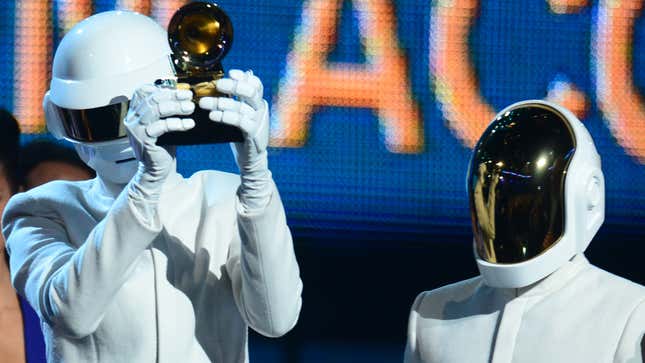Recording Academy Clarifies That Grammy Awards Are Only for Humans
"Creators are using AI right now. I’ve seen it in my studio. I’ve seen it in sessions that I’ve been involved in. I’m hearing about it from our members."
EntertainmentMusic

In another sign of the pre-singularity tension gripping culture, the Recording Academy announced language clarifying that “only human creators are eligible to be submitted for consideration for, nominated for, or win a Grammy Award.” The move specifically addresses AI’s use in the creation of music, noting, “A work that features elements of AI material (i.e., material generated by the use of artificial intelligence technology) is eligible in applicable categories,” and that “a work that contains no human authorship is not eligible in any categories.” Sorry, robots! Your labor will continue to be taken for granted, not compensated, and go without trophy adornment for the foreseeable future.
Regarding the announcement, Harvey Mason Jr., the Recording Academy’s CEO, told Billboard: “We have not had problems yet but we know that this is obviously going to play a role in the future of music and society in general. Creators are using AI right now. I’ve seen it in my studio. I’ve seen it in sessions that I’ve been involved in. I’m hearing about it from our members. It’s something we will absolutely be addressing.”
-

-

-

-

-

-

-

-

-

-

-

-

-

-

-

-

-

-

-

-

-

-

-

-

-

-

-

-

-

-

-

-

-

-

-

-

-

-

-

-








































